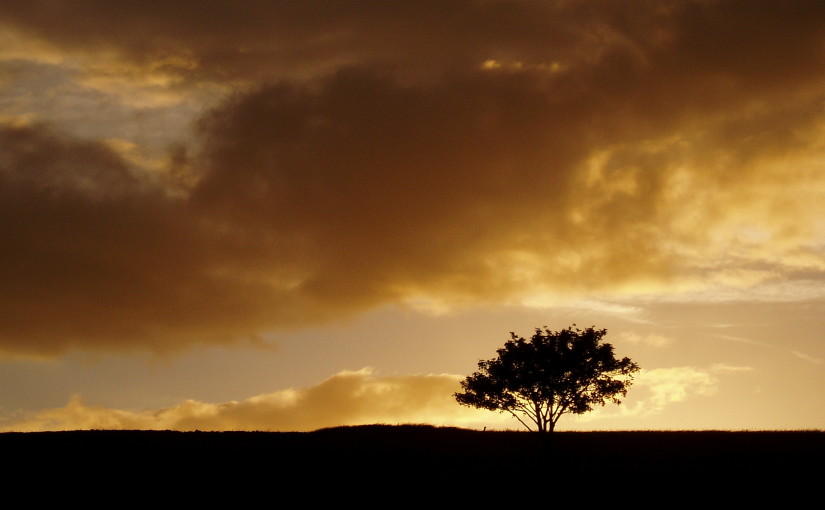It is customary, at least in the culture I grew up in, to look back over the past year, and think about the coming year on the last day of a given year. It is also customary to make resolutions, which in my experience can be summed up as “idealistic, knee-jerk plans founded on guilt about recent, primarily health related, shortcomings, which are almost certainly doomed to failure as one realises the financial impact of end-of-year related festivities”. Examples of resolutions might include giving up a certain kind of food, or health-damaging habit, or resolving to do something impressive, like doing a large amount of exercise in one go (and telling everyone about it on social media, of course). Amidst all of this looking to the past and the future, we lose sight of the here and now, which is something that proponents of mindfulness and related endeavours might frown upon. Of course, one might resolve to practice mindfulness more, which might alleviate their consternation.
When I look back on this year, I am aware of a few key points:
- I managed to leave Facebook. Second time lucky, I guess. I think that mindfulness came in useful with that process. The first time I tried to leave, I fell foul of the cunning slow-leaving protocol that Facebook employs, which means that there is an enforced two-week period, during which your account is frozen in carbonite, ready to be reanimated if you press the button. I broke, but realised that on balance, I still wanted to leave. The second time, I managed it. I imagine the data I painstakingly deleted is safely backed up all over various agencies’ sites, but at least the flow was stopped. I was disturbed and fascinated to learn that Facebook now has a search facility, which allows the searching of one trillion posts with similar ease to Google. Incidentally, after I left Facebook, I found the quality of my social life improved.
- Our cat nearly died. He’s fine now, but I was amazed by the intensity of emotion it evoked in me. He inadvertently taught me something about what really matters, as it seems I needed a reminder.
- Getting away from everything was really important. A trip to the middle of nowhere in France was a tonic for the soul, as was a cycling trip with old friends. When I started the clinical psychology training course, I was not aware of the toll it was to take on my life, and by extension the lives of those I care most about. The words “careful what you wish for” now have added resonance for me. I don’t regret doing the course at all, but it is of course not to be taken lightly.
- I have reinvigorated my photography. Whilst I never stopped taking photos, I noticed that over the past couple of years, the intense quality of the photos I was taking had diminished, and that I was taking less of them. I sought advice from friends, and ended up getting into 500px. It has reignited my passion for producing images that move. It is also a welcome respite from the sometimes overwhelmingly abstract work that the course entails. On a related note, my Flickr stream also reached one million views.
- Little projects have helped to broaden horizons. The most satisfying was probably turning a Raspberry Pi computer into a silent homewide file and media server that fits behind the books in a bookshelf.
- Strava has also been a fun diversion, turning every ride or jog into a game. This has been boosted by my long-distance placements ending. Now I am placed close enough to where I live to cycle to work, I can enjoy the sublime feeling of cycling, and when time allows, I can take longer, hillier routes home. If you’re into cycling or jogging, I highly recommend some form of gamification system. Although, if Russell Brand is right, it’s all building towards some sort of voluntary technologically-mediated panopticon.
Looking forwards, this year my training journey is scheduled to end. I am concerned that at times, and for various reasons, the sense of fun and excitement that I have in relation to psychology has been sucked away, in a similar way to how the joy of photography left me. When I was doing my undergraduate psychology degree, I had a wobble following a bout of glandular fever. After a GP unhelpfully gave me the prognosis, “You will feel awful for another three weeks, you will be depressed for a year and you will have low energy levels for the rest of your life” I resolved to make changes. Some were positive, like gradually building up my activity levels. Some were less useful, like changing courses from psychology to computer science. A lightbulb moment came when my friend said to me “Charlie, when you came home each day you used to tell me interesting facts about things you had learned, but you just don’t do that any more.” He made me realise that psychology was something I lived and not simply learned, and so I switched back as soon as I could. At times when my motivation diminishes, I hope to remember the things about psychology that fascinate. After all, if we cannot enjoy what we are doing, what is the point?
Optical illusions: a reminder that perception is not reality:
Split-brain phenomenology: which side of your brain is in control?
The Robber’s Cave Experiment: a foundation of reality television:
In terms of realistically achievable resolutions, I think something we often miss is to simply experience and hopefully enjoy the moment. Edward Abbey put this into words rather beautifully with:
“One final paragraph of advice: do not burn yourselves out. Be as I am – a reluctant enthusiast….a part-time crusader, a half-hearted fanatic. Save the other half of yourselves and your lives for pleasure and adventure. It is not enough to fight for the land; it is even more important to enjoy it. While you can. While it’s still here. So get out there and hunt and fish and mess around with your friends, ramble out yonder and explore the forests, climb the mountains, bag the peaks, run the rivers, breathe deep of that yet sweet and lucid air, sit quietly for a while and contemplate the precious stillness, the lovely, mysterious, and awesome space. Enjoy yourselves, keep your brain in your head and your head firmly attached to the body, the body active and alive, and I promise you this much; I promise you this one sweet victory over our enemies, over those desk-bound men and women with their hearts in a safe deposit box, and their eyes hypnotized by desk calculators. I promise you this; You will outlive the bastards.”


Great post Charlie. Love the commentary about resolutions and the intelligent reflection on life and things that make it more engaging and meaningful.
I read this earlier today http://www.theguardian.com/commentisfree/2015/jan/02/tale-of-a-constipated-goldfish-raised-my-hopes-for-2015
Thanks James!
I read the article. It’s true: of you watch enough news, you might be hard pressed not to believe that the world and humans are awful, but actually the vast majority of people are kind, loving and warm, and even the people painted as pure evil probably have their flashes of kindness. We prefer to see things simply, and notice things we perceive as threatening more easily, so that’s what the news feeds us.
P.S. feeding your fish boiled (and cooled) peas can help guard against constipation (for them).